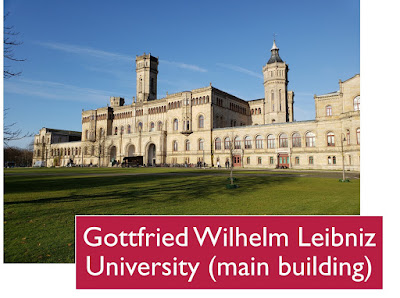Karl Barth on Divine Freedom – comprising a presentation to a recent Lindenwood University faculty colloquium
It was my privilege back in December 2019 to travel to Hannover, Germany and give a public lecture on Karl Barth. I haven’t shared a lot about that in any one place online, although I have shared some pictures in various places and I mentioned it briefly here and shared some relevant links. Subsequently, I was invited to present my research to the Spring 2020 meeting of the Lindenwood Faculty Colloquium. It was originally scheduled for March, but then COVID-19 happened and we ended up having the event virtually last week (May 14, 2020). I recorded my presentation and share it below.
I excerpted and streamlined the core of the Barth exposition that I provided in Hannover (yes, I persist in using the German spelling), and the presentation also includes some pictures from the trip. My full lecture will be published in German in due course. Never fear, I have some plans for bringing it out in English as well. In the meantime, you can at least enjoy this snippet.
Here are a few sentences extracted from the presentation that you, gentle reader, may (or may not) find engaging:
==================================
Follow @WTravisMcMaken
Subscribe to Die Evangelischen Theologen
I excerpted and streamlined the core of the Barth exposition that I provided in Hannover (yes, I persist in using the German spelling), and the presentation also includes some pictures from the trip. My full lecture will be published in German in due course. Never fear, I have some plans for bringing it out in English as well. In the meantime, you can at least enjoy this snippet.
Here are a few sentences extracted from the presentation that you, gentle reader, may (or may not) find engaging:
“Barth’s doctrine of God thus holds together love and freedom as an inextricably linked dialectical pair with love as the primary term.”
“The material content of God’s works determine and limit, but also fund and provoke, reflection upon the being of this God.”
“There is an openness to and inclusion of otherness, a love for otherness, even within God’s triune being.”
“God’s being-in-act also includes love for human otherness because God as triune is always already a self-differentiated being-in-act of love for the other.”
“For Barth, saying God’s love is free simply underscores that God’s love is nothing other than God’s being-in-act.”
“God is free for lovingly welcoming and including others and otherness, and free from anything that might try to get in the way of that love.”
“God’s freedom means noncompetitive relationship—a relationship where one side doesn’t have to lose so the other side can win.”
==================================
Follow @WTravisMcMaken
Subscribe to Die Evangelischen Theologen


Comments